The Russian Media Lab has initiated a collaboration with the international art project “States of Control” curated by the St. Petersburg-based Creative Association of Curators (TOK). Upon invitation by TOK’s Anna Bitkina and Maria Veits, project researcher Saara Ratilainen took part in the performative talk show “I’ve Got the Power!” on 19 August 2017.
States of Control took over Finland in August with a series of exhibits and performances at the Alkovi and Augusta galleries in Helsinki. The events were organized in collaboration with the Helsinki International Artist Programme (HIAP) “Connecting points” curated and coordinated by Finnish artists Miina Hujala and Arttu Merimaa. One of the central aims of the project is to advance the role of art in understanding the most difficult political questions of our times: occupation, border control, immigration and propaganda. The topics discussed through art projects curated by TOK overlap with the central research interests of the Russian Media Lab, namely emerging spaces of freedom of expression in different areas of cultural production.
The idea for the project emerged from the realization that, as Bitkina and Veits put it,
“political turbulence and conflicts of the last few years have launched numerous propaganda campaigns and battles in the press. The war in Syria, the annexation of Crimea, emerging opposition between Russia, Europe and the US, Brexit, forced migration, increase of terrorism in Europe and other issues have been circulating in the media and often used as elements of massive political games and power relations.”
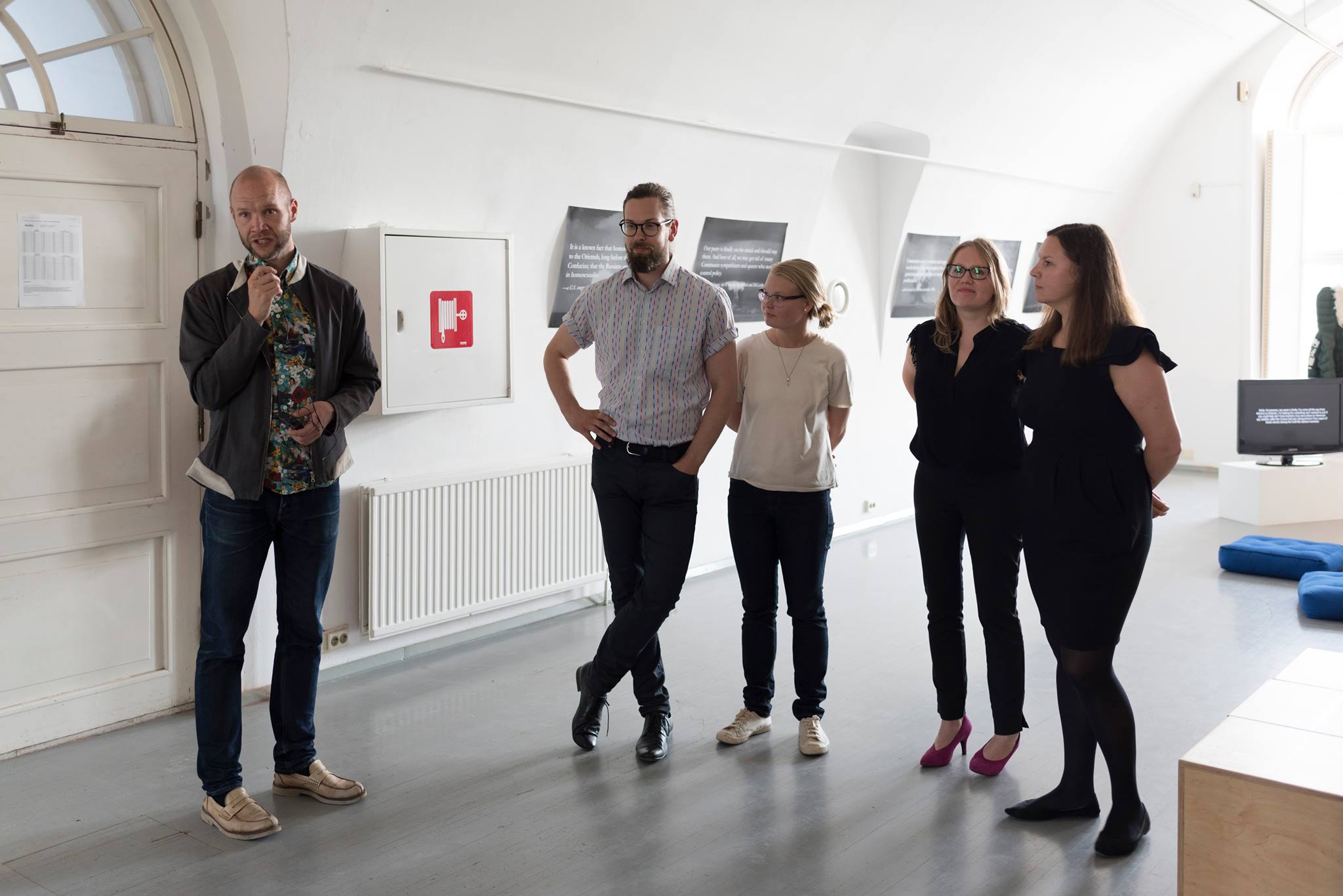
At the opening ceremony of ‘States of Control,’ Augusta Gallery, August 2017. From left to right: Juha Huuskonen (Director HIAP), Arttu Merimaa, Miina Hujala, Mara Veits (TOK), Anna Bitkina (TOK). Photo: Sergio Urbina
Bitkina and Veits continue,
“Today, ‘alternative facts’, propaganda, fake news, and carefully designed media narratives have more control over our lives than ever. We have become utterly dependent on our electronic newsfeeds, which we allow to shape our worldviews and opinions.”
To tackle the role of contemporary media in producing polarized exchanges of opinions, political confrontations and propaganda, Bitkina and Veits organized the performative talk show “I’ve Got the Power!” The talk show’s host Denis Maksimov structured the discussion around the questions “What is truth? Who constitutes the rules of reality?” He explains the importance of these straightforward but thought-provoking questions as follows:
“The contemporary thickly media-saturated world is a neoliberal marketplace of subjective realities, where the diversity of ‘offering’ on the ‘shelves’ is dictated by the multiplication of the power centers. The history did not end, as Francis Fukuyama assumed it would, with the collapse of one superpower and ultimate, final rise of the singular winner. (…) The tool of defining reality hadn’t changed: propaganda covered the walls of Ashurbanipal palace thousands of years ago and now it covers private ‘walls’ of Facebook. Have we got the power to critically evaluate, deconstruct and reveal its hidden agendas, power narratives and enslaving desires?”
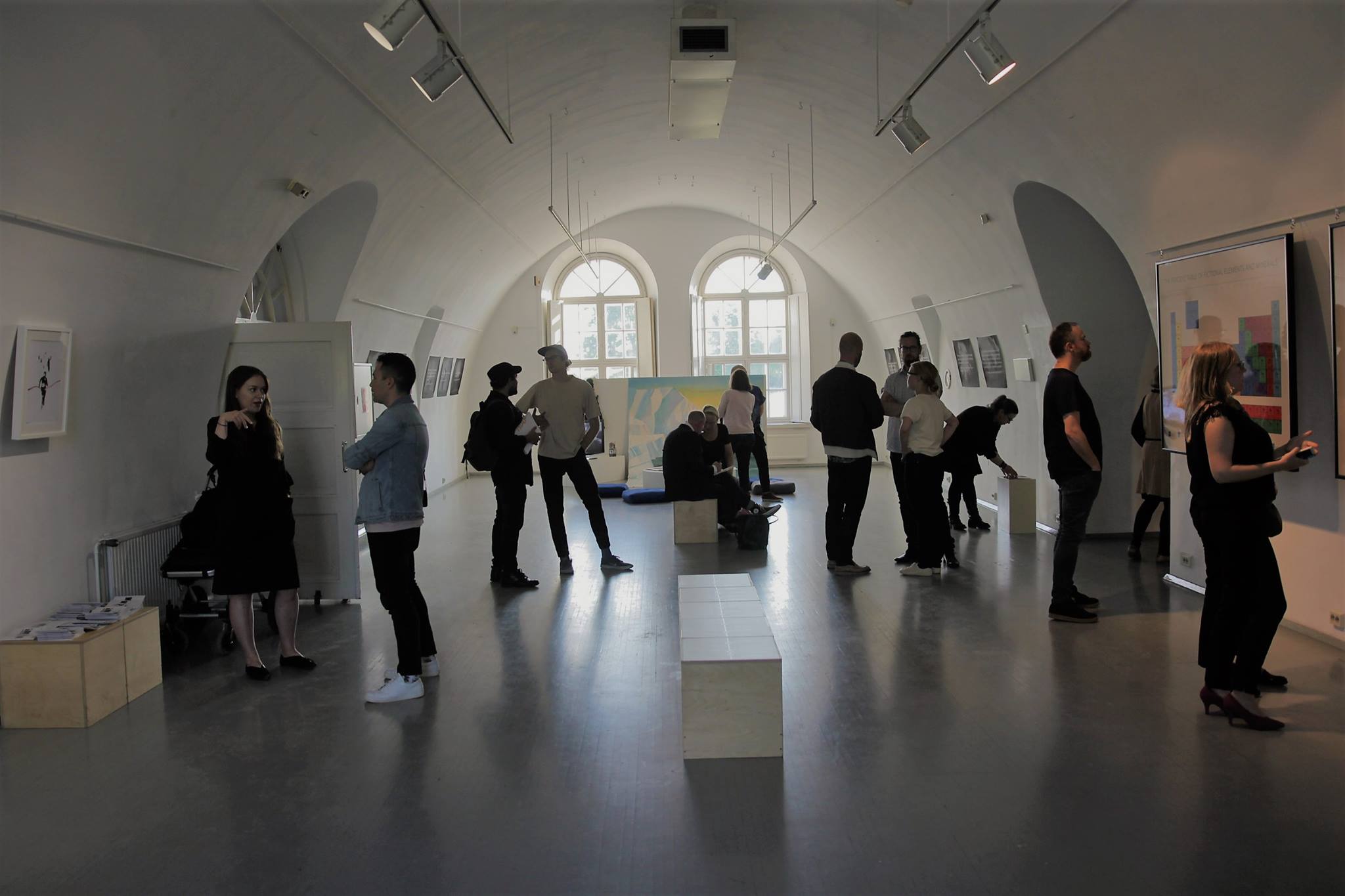
One of the exhibition spaces of the beautiful Augusta Gallery on Suomenlinna island. Photo: Shir Comay
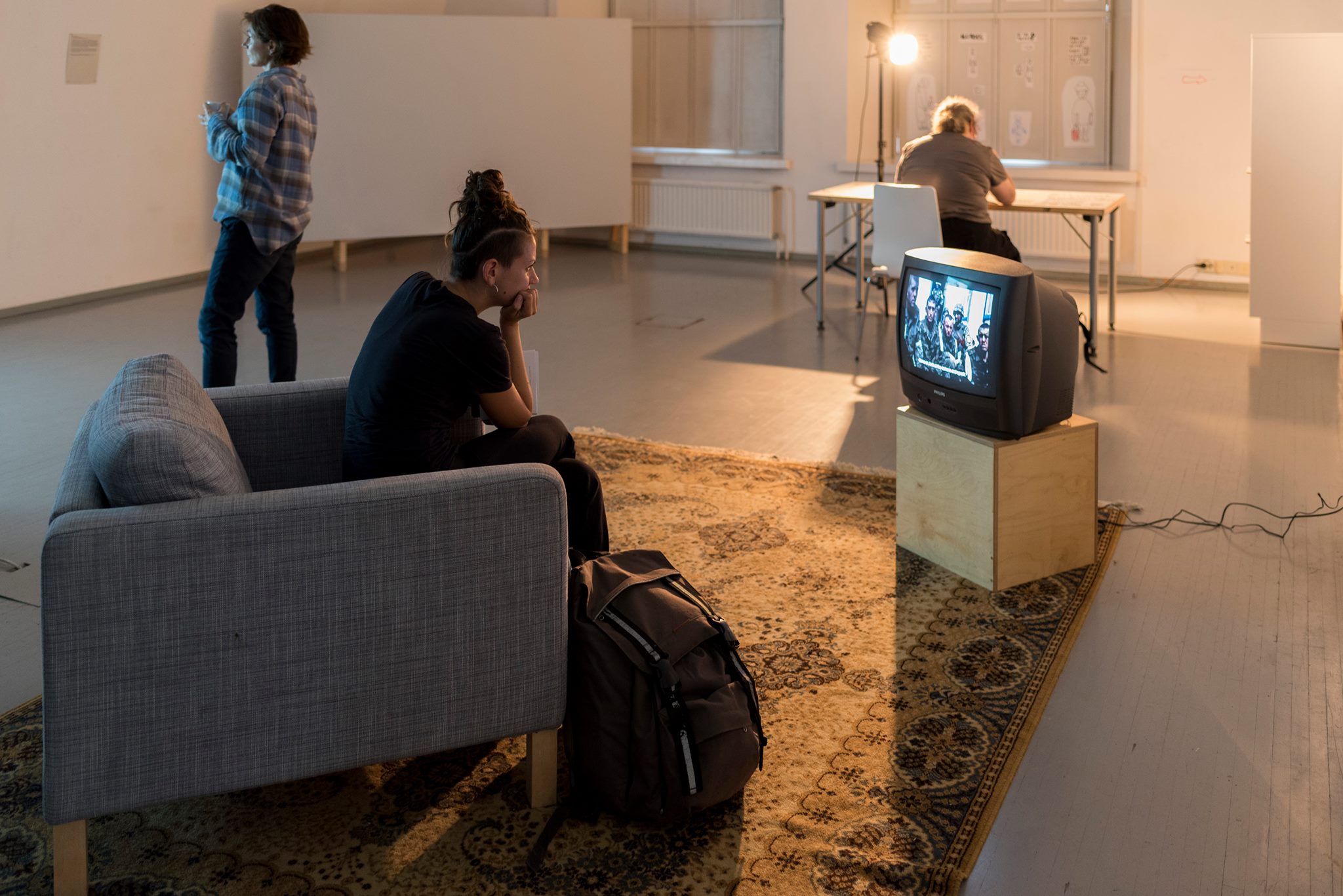
Display of Mikhail Tolmachev’s video installation ‘What Has Been Seen (Cannot Be Unseen)’ on the conflict in Ukraine at the ‘States of Control’ exhibition in the Augusta Gallery. Photo: Sergio Urbina
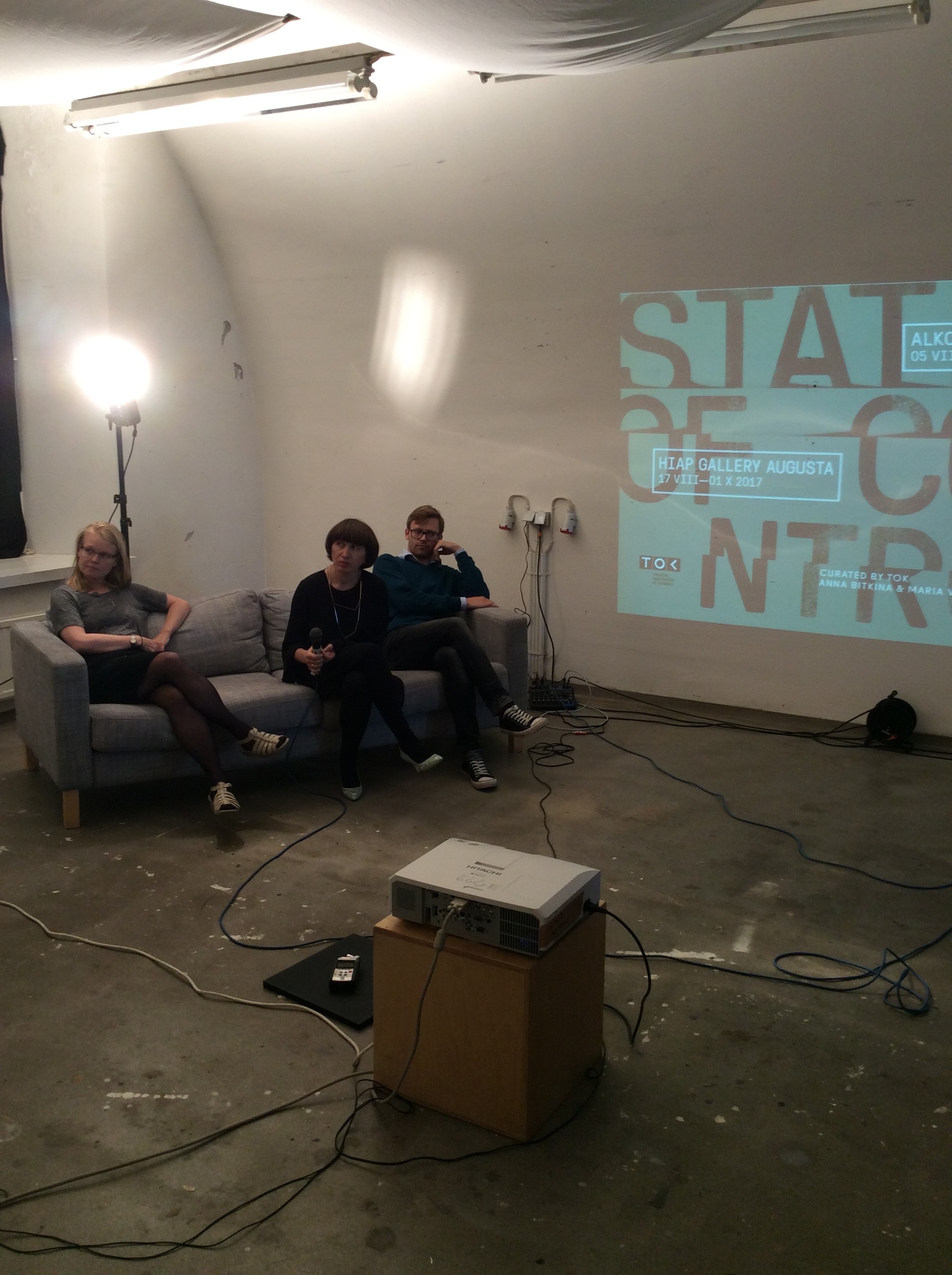
One of the discussion panels on the performative talkshow ‘I’ve Got the Power!’. From left to right: curator Miina Hujala, artist Alevtina Kakhidze, researcher Maksim Alyukov. Photo: Saara Ratilainen
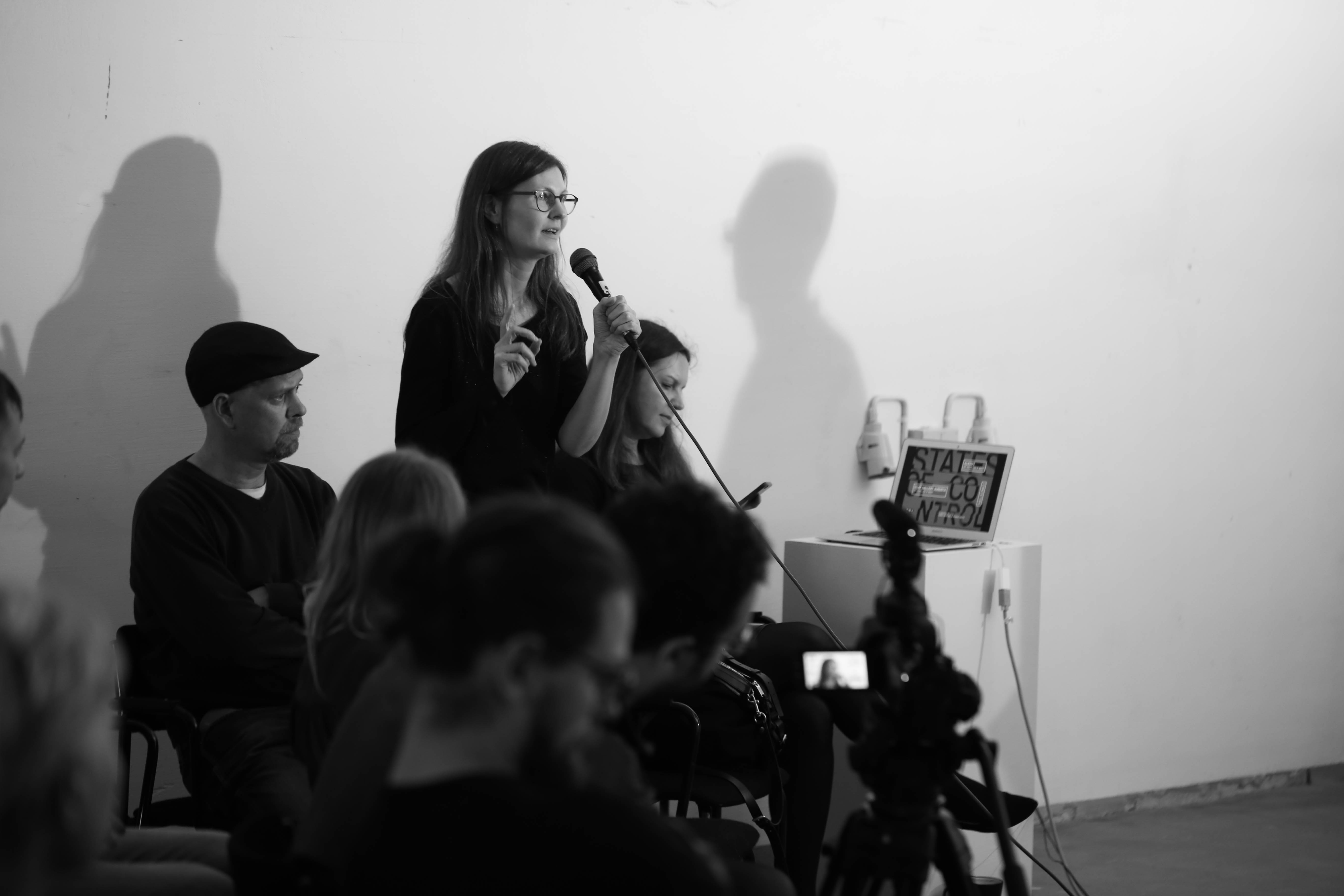
Russian Media Lab researcher Saara Ratilainen takes part in the Q&A session during the performative talkshow ‘I’ve Got the Power’. Photo: Timo Tuominen

Artwork by Kalle Hamm and Dzamil Kamanger ‘East-West Exhibition Battle’ at the ‘States of Control’ exhibition in the Augusta Gallery. The artwork, commissioned by TOK for the exhibit, consists of 13 wooden boxes with a timeline describing artistic collaborations between East and West. Photo: Timo Tuominen
“States of Control” is a continuation of TOK’s ongoing research into changing media strategies that the curators started in 2014. Their first research results were presented at the exhibition “Propaganda News Machine: Constructing Multiple Realities in The Media” at Flux Gallery in New York City in 2016. TOK continues the project by carrying out research and engaging more artists and other professionals into its activities, beyond Finland and the U.S.
Veits and Bitkina are committed to combining artistic practice with academic research:
“We find it very important to contribute to generating theoretical knowledge on international socially engaged art practices and introduce local contexts and Russian-based artistic and curatorial methods to the international art community. Elaborating shared concepts and terminology dealing with social practices that could be used by various professionals across disciplines as well as collecting and generating knowledge about engagement of art professionals and community members into sociopolitical processes is one of the conference’s main goal.”
Quotes from http://tok-spb.org/new/en/states-of-control
Edited by Saara Ratilainen





